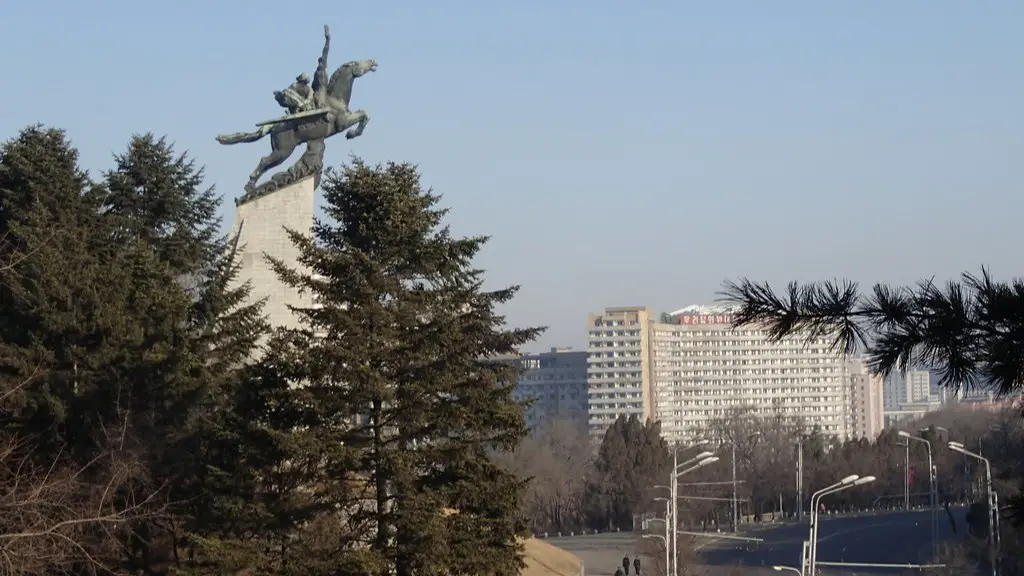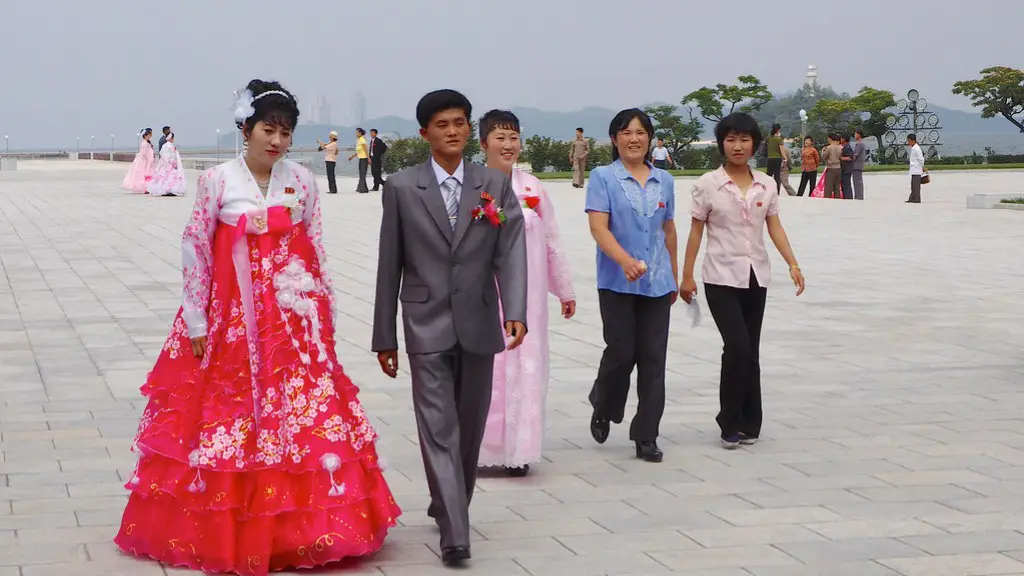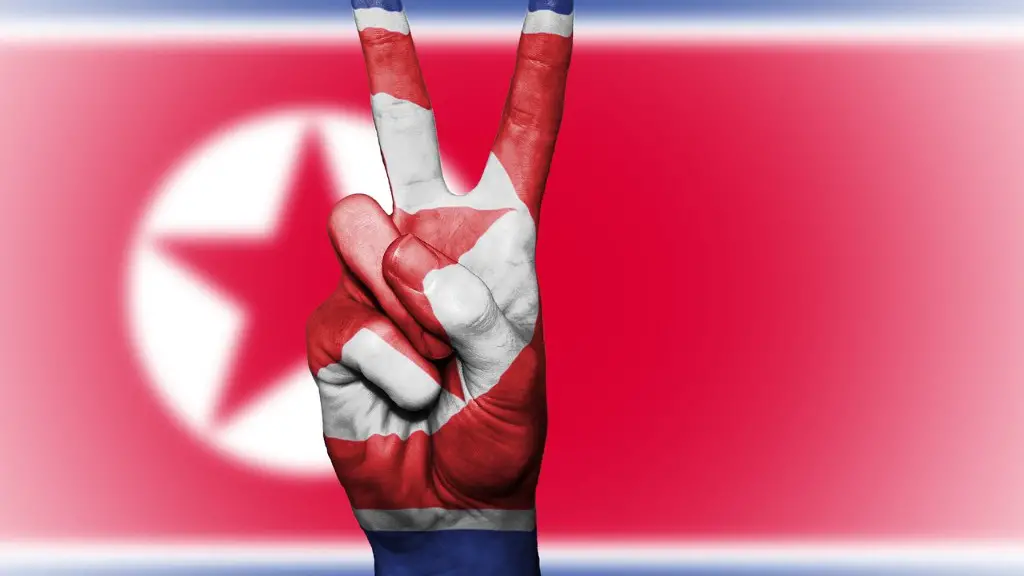The Kim Family and Its Decades-Long Leadership of North Korea
North Korea has long been ruled by the Kim family — its founder Kim Il-Sung assumed leadership of the Democratic People’s Republic of Korea upon its establishment in 1948, and his son, Kim Jong-Il, continued his legacy until his death in 2011. It was Kim Jong-Un, the youngest of Kim Jong-Il’s three sons, who then took the reins. With his large grin and characteristic hairstyle, the young leader quickly became a symbol of tyranny and isolation, even appearing in the eyes of some South Koreans as a kind of parody of a despotic leader.
Despite his public image, however, not much is known about Kim Jong-Un — his precise age, for instance, is still unknown (it is believed to be between 31 and 35 years of age). This has led to a constant contesting of legitimacy amongst the international community and North Koreans, as well as to a degree between the younger and older family members.
Politically, Kim Jong-Un’s reign has been focused on a return to economic centralisation, with some claiming that this has included reestablishing collective farms and state-owned enterprises. The consolidation of power in the later years of his father’s regime, as well as the continuation of military-first policies and the continued support of the songbun system — a de facto caste system separating North Koreans — has kept quality of life in the country low, leading to large-scale illegal immigration to China.
United Nations Sanctions and North Korean Reactions
The international community has responded to North Korea’s nuclear weapons programs and other acts perceived as destabilizing through the issuance of sanctions. The United Nations has been at the helm of these international efforts and has conveniently grouped North Korea with seven other countries in one Security Council Resolution.
Since 2006, when the country first tested a nuclear weapon, the United Nations has expanded its sanctions on Pyongyang in response to the country’s refusal to end its nuclear and missile programs. However, given the isolated nature of the regime, it has rarely been subject to the full extent of sanctions in the Security Council Resolution 2270, and has been able to use the increasing penetration of Chinese business interests on the peninsula as a means of counteracting them.
Domestically, the regime has responded to the restrictions imposed by the international community, chiefly the United States, through aggressive posturing and insistence on the principles of economic self-sufficiency. The government has often used the pretext of sanctions and pressures of war to redirect resources to the military while denying its citizens access to foreign media, products and services.
North Korea’s Economy and Its Dependency on China
North Korea’s economy is heavily dependent on export revenues generated by its mineral and electricity exports to China. Without the ability to export its natural resources, the North Korean Government would have difficulty providing for its citizens and military, and would likely experience a severe economic downturn.
It has often been noted that the North Korean economy is highly inelastic, meaning that any change to the international environment will have a large effect on the economy regardless of the internal economic and political policies pursued. In this regard, the increasing economic sanctions by the United Nations, specifically those related to the export of coal, are severely limiting the resources provided to the people.
This reduces the ability of the North Korean Government to provide for its citizens and leads to further dependence on China for foreign investment. While the Kim regime has been hesitant to open its markets to Chinese influence and largesse, the situation has often changed over the years, with China increasingly taking control of transportation and resource sectors.
North Korea’s Growing Nuclear Program and Threats to the West
Since the collapse of the Soviet Union and its allies, North Korea has been pushing forward with its nuclear program in order to deter the United States and other western countries from interfering in its sovereign affairs.
Diplomatic attempts by the United States and the United Nations to dissuade North Korea from such development have largely failed, and in order to counter the increasing profile of North Korea’s nuclear program, the United States has increased its presence in the region since 2009, stationing troops in Japan and the South Korea.
The Kim regime has responded to this increase in forces by further accelerating its nuclear ambitions and even speaking of the possibility of a nuclear attack on the United States mainland, something that has been taken seriously by the international community given the advances of the North Korea’s nuclear and missile program.
North Korea’s Relations With South Korea
Relations between North Korea and South Korea, which had largely remained tense despite some momentary rapprochements such as the Sunshine Policy initiated by the South Korean President Kim Dae-Jung in 1998, have seen further deterioration in recent years.
South Korea, following the lead of the United States, has increased its military presence in the region since 2009 in an effort to deter the North Korea’s nuclear program and de-escalate tensions. In response, Pyongyang has threatened military action and has continued to expand its own program in an effort to assert its dominance over the region.
Kim Jong-Un’s Propaganda Blitz
In an effort to consolidate power and rally a population increasingly hesitant to accept his legitimacy due to his comparative youth, Kim Jong-Un has been pushing a nationwide propaganda blitz, rousing national pride by emphasizing the idea of a ‘great nation’, touting the nuclear program and its possible deterrent effect on outside forces, and writing new Presidential Awards.
This has included an increase in the size of the military, a new initiative to strengthen the North Korean identity, and the crackdown of basic human rights. By further drawing on the legacy of his father and grandfather while emphasizing North Korean exceptionalism and a strong national identity, Kim Jong-Un has been able to sway a large degree of the North Korean population in support his rule while also tightening control over its citizens.
North Korea’s Missile Tests
Despite the international condemnation of its nuclear program and the United Nations passing of various sanctions on the country, North Korea has continued to increase its missile program.
In 2016, North Korea conducted a series of missile tests, including the launch of an intermediate-range ballistic missile from a submarine base near the coast of Sinpo. This marked a major stepping stone for the country in its efforts to achieve nuclear ambitions and set a worrying precedent for the international community.
The tests were also seen as a response to President Obama’s then world tour, a show of strength from the Kim regime that left the international community aghast. The repercussions of these tests, as well as those that followed, are still playing out today, with North Korea facing increasing pressure from the United Nations and the international community.
North Korea’s Widespread Abductions
The abduction of foreign nationals by North Korea is a frequent occurrence that has been widely documented by UN and human rights organizations. In 2014, North Korea confirmed the abduction of South Korean missionary Kim Jung-wook, who vanished in 2004 and was presumed dead.
Kim, whose “alleged missionary activities” were cited as the reason he had been taken hostage and then released back in 2012, is an example of the regime’s practice of using abductions to further their political agenda. South Koreans living in the north often risk being arrested and forced into servitude due to their activities in the country, and are sometimes even used as political pawns.
This practice has been condemned by the international community and the United Nations has continued to pressure North Korea to repatriate abductees and to address human rights violations.
North Korea’s Continuing Defiance of the International Community
North Korea’s continued development of nuclear and missile programs and refusal to cooperate with the United Nations has been viewed as a major challenge for the international community. The United States and other nations have called for the country to be held accountable and diplomatic initiatives have been put in place in order to encourage the regime to comply with international law.
However, Pyongyang has an old hand at playing the game and continues to ignore resolutions and sanctions, which has made its relationship with foreign countries increasingly strained. This has in turn seen the international community struggle to find a way to rein in a country that has grown increasingly belligerent in its defiance of the world.
Questions Remaining Surrounding Who Is Running North Korea
The international community is still uncertain when it comes to trying to understand who exactly is running North Korea. The total control of the state rests in the hands of the Kim family, but there are other directors, such as the Workers’ Party of Korea, the National Defense Commission, and the Military Affairs Commission, which seem to have a powerful influence on the country as well.
In addition, there are still some questions with regards to Kim Jong-Un’s legitimacy and grip on the country. It is yet to be seen if the transition of power was done in an orderly manner or if it was just a façade put up to satisfy the international community.
Furthermore, the lack of transparent information coming from the country has made it difficult for the international community to judge the true leadership of the state, who clearly operate behind a veil of secrecy. This lack of information has led to a general confusion as to who is really running the country and what exactly are the plans for the future.
The Military-First Policy and Its Implications
Under the rule of Kim Jong-Un, the country maintains a “military-first” policy, a doctrine that prioritizes the military over other sectors of society and outlines the need to defend the country against the “imperialistic forces” of the United States and its “running dogs” in the region.
This policy has seen North Korea develop one of the largest standing armies in the world and maintain a large military industrial complex. As such, a large part of the government’s budget is devoted towards the military and the country has seen many of its civilian sectors suffer due to this misallocation of resources.
In addition, the “military-first” policy has been one of the causes for the large discrepancy between the civilian sector and the military, with the former facing extreme austerity measures while the latter experiences relative comfort and wealth.
North Korea’s Continuing Progress and Expansion
Despite the heavy sanctions imposed by the United Nations, North Korea has managed to sustain an average growth rate of 3.5 percent and maintain a relatively steady economy. This growth has been credited, in part, to the Kim regime’s military-first policy and the country’s continued emphasis on its nuclear program.
As such, the country has been able to further expand its military and test the limits of the latest technologies. This has increased the country’s international clout and emboldened the Kim regime to continue its nuclear pursuits and threaten the international community with its newfound military capabilities.
North Korea has also participated in international events and made tentative steps to strengthen ties with other countries, such as China, although this has been largely seen as a means of receiving economic aid. In addition, the country has continued to develop advanced weapons of mass destruction, further worsening its relations with the international community.
The Future of North Korea’s Leadership and the Global Community
Despite its defiant stance and aggressive posturing towards the international community, North Korea continues to hold a crucial position in the security of the region and the world. As such, there is a large degree of uncertainty surrounding the future of North Korea’s leadership and its relationship with



